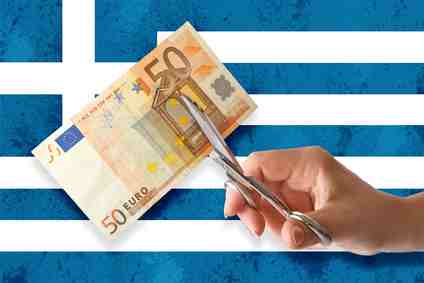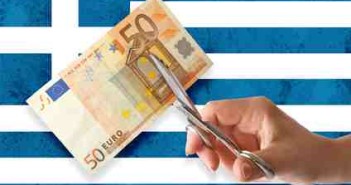Conscious that Greece is simply not delivering on any of its previous pledges, Europe is finally adopting a more aggressive attitude towards their troubled member. Estonia’s central bank chief put it bluntly this morning when he stated that the problem right now is a lack of trust in Greece, and that the country would be fine if only fiscal tightening was carried out as planned.
Guest post by FXPro
For their part, Greek government officials are getting the message. Greek Finance Minister Papaconstantinou reaffirmed the cabinet’s commitment to the fiscal austerity package. He also claimed that further measures designed to reduce the deficit to 1% of GDP by 2015 would be announced after the EU/IMF/ECB had finalised their review of Greek finances, probably some time next week.
Papaconstantinou also claimed that the Government would proceed immediately with the sale of key state assets, including stakes in Postbank, OTE Telecom, the ports of Athens and Thessaloniki, although no details on either expected price or timing was given.
The latter was seen by many as a response to heightened criticism that the Greek government was dragging its feet on assets sales, amidst considerable local opposition and supposed legal/technical difficulties. International scepticism on Greece’s willingness to sell the family silver is perfectly understandable – in the past two decades, previous governments have had virtually no success in selling state assets.
Europe is fully aware that Greece is slipping well behind on fiscal consolidation, and that it will need yet more money next year, because a return to the bond markets looks both extremely unlikely and non-sensical. As a result, Greek asset sales seem the most realistic hope for Europe is terms of being repaid. Indeed, Europe is playing hard ball with Greece on this issue, by suggesting that any further aid to the country could be directly tied to specific state assets, or that further bailout money is conditional on the establishment of a privatisation agency that contains non-Greek officials. Some Greek officials are worried that the next tranche of bailout money may be in doubt, because so many commitments have not been fulfilled.
Needless to say, Greek politicians are pushing back hard against some of these proposals. However, their bargaining power is worsening almost every week, and Europe is getting more insistent on having their demands met. This is perfectly understandable, as their electorates become increasingly agitated at writing yet more cheques for profligate eurozone members. At the risk of stating the obvious, the situation is becoming more and more precarious.
Michael Derks
Chief Strategist
